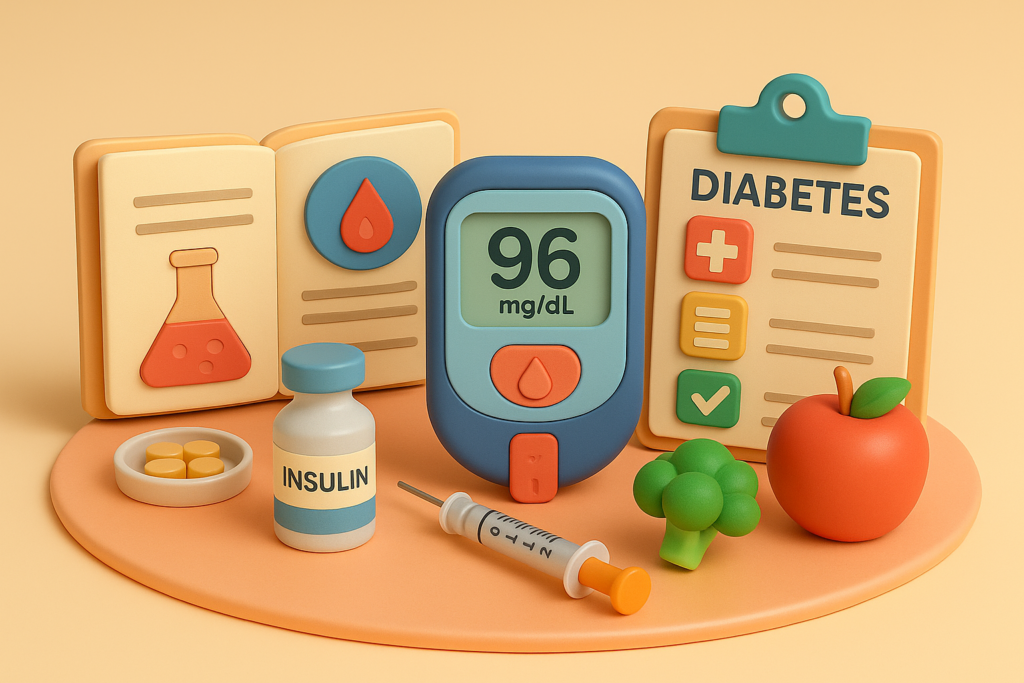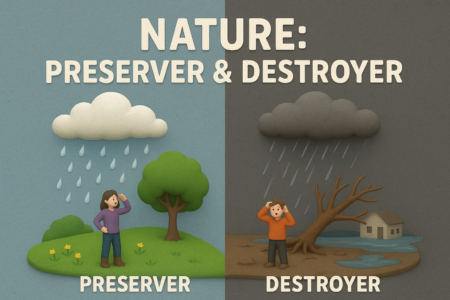Diabetes is a common but serious health condition that affects millions of people around the world. Whether you’re a student researching for a school project or just curious about the disease, this blog will give you a clear and simple understanding of diabetes, its causes, treatments (then and now), prevention tips, and ongoing research.
🧪 The Discovery of Diabetes
The word “Diabetes” comes from a Greek word meaning “to pass through” – referring to the excessive urination seen in people with the disease.
- Ancient Times: As early as 1500 BC, Egyptian and Indian texts described a condition where people passed sweet-smelling urine – later recognized as diabetes.
- In 1675, the term “Diabetes Mellitus” was coined. “Mellitus” means “honey-sweet” in Latin, again pointing to sugary urine.
- 1921 – Major Breakthrough: Two scientists, Frederick Banting and Charles Best, discovered insulin, a hormone produced by the pancreas. This changed the lives of millions forever, making diabetes manageable.
🔍 What Causes Diabetes?
There are two main types of diabetes:
1. Type 1 Diabetes:
- Caused when the body stops producing insulin.
- Usually develops in children or teens.
- It’s not preventable and requires daily insulin injections.
2. Type 2 Diabetes:
- Occurs when the body doesn’t use insulin properly.
- Linked to poor lifestyle habits, unhealthy diet, obesity, and lack of exercise.
- Mostly seen in adults but now increasing in children too.
🩺 How Was Diabetes Treated in the Past?
Before insulin was discovered, treatments were very limited:
- Patients were put on extremely strict diets, often leading to starvation.
- Natural herbs like bitter melon, fenugreek, and neem were used in Ayurveda.
- Despite efforts, life expectancy was very low for people with diabetes before the 20th century.

🌐 Modern-Day Diabetes Management
Today, diabetes is much more manageable thanks to medical advancements:
✅ Type 1:
- Daily insulin injections or insulin pumps.
- Regular blood sugar monitoring.
✅ Type 2:
- Healthy diet and regular exercise.
- Oral medications or insulin in some cases.
- Devices like Continuous Glucose Monitors (CGMs) help track sugar levels in real-time.
🛡️ Precautions to Prevent Diabetes
While Type 1 can’t be prevented, Type 2 Diabetes can be delayed or avoided with some smart habits:
- 🥗 Eat a balanced diet (low in sugar and carbs).
- 🏃♂️ Exercise regularly (at least 30 mins a day).
- 🧘♀️ Manage stress through yoga or meditation.
- 🚫 Avoid junk food, sugary drinks, and smoking.
- 🛏️ Get enough sleep (7-9 hours a night).
🧠 Precautions After Being Diagnosed with Diabetes
If someone already has diabetes, here are important steps to stay healthy:
- 🍱 Stick to a diabetes-friendly diet.
- 🕒 Take medications or insulin on time.
- 💉 Regular blood sugar checks.
- 👟 Stay active and maintain a healthy weight.
- 👁️🗨️ Get routine checks for eyes, kidneys, and feet.
🔬 Recent Research & Advances in Diabetes
Science is continuously working to make life better for people with diabetes:
- 🧬 Artificial Pancreas: Devices that automatically adjust insulin levels.
- 💉 Smart Insulin: Being developed to release insulin only when needed.
- 🧪 Stem Cell Therapy: Potential to regenerate insulin-producing cells.
- 📲 Diabetes Apps: Help track sugar levels, diet, and medication.
✨ Conclusion: Diabetes is Manageable!
Diabetes is no longer a death sentence. With proper awareness, timely treatment, and a healthy lifestyle, anyone can live a full and active life.
👉 Remember: Early detection and good habits are key. Whether you’re trying to prevent diabetes or manage it, knowledge is your strongest tool.






